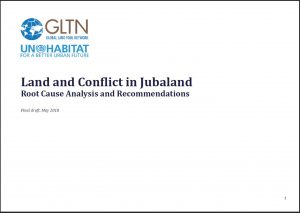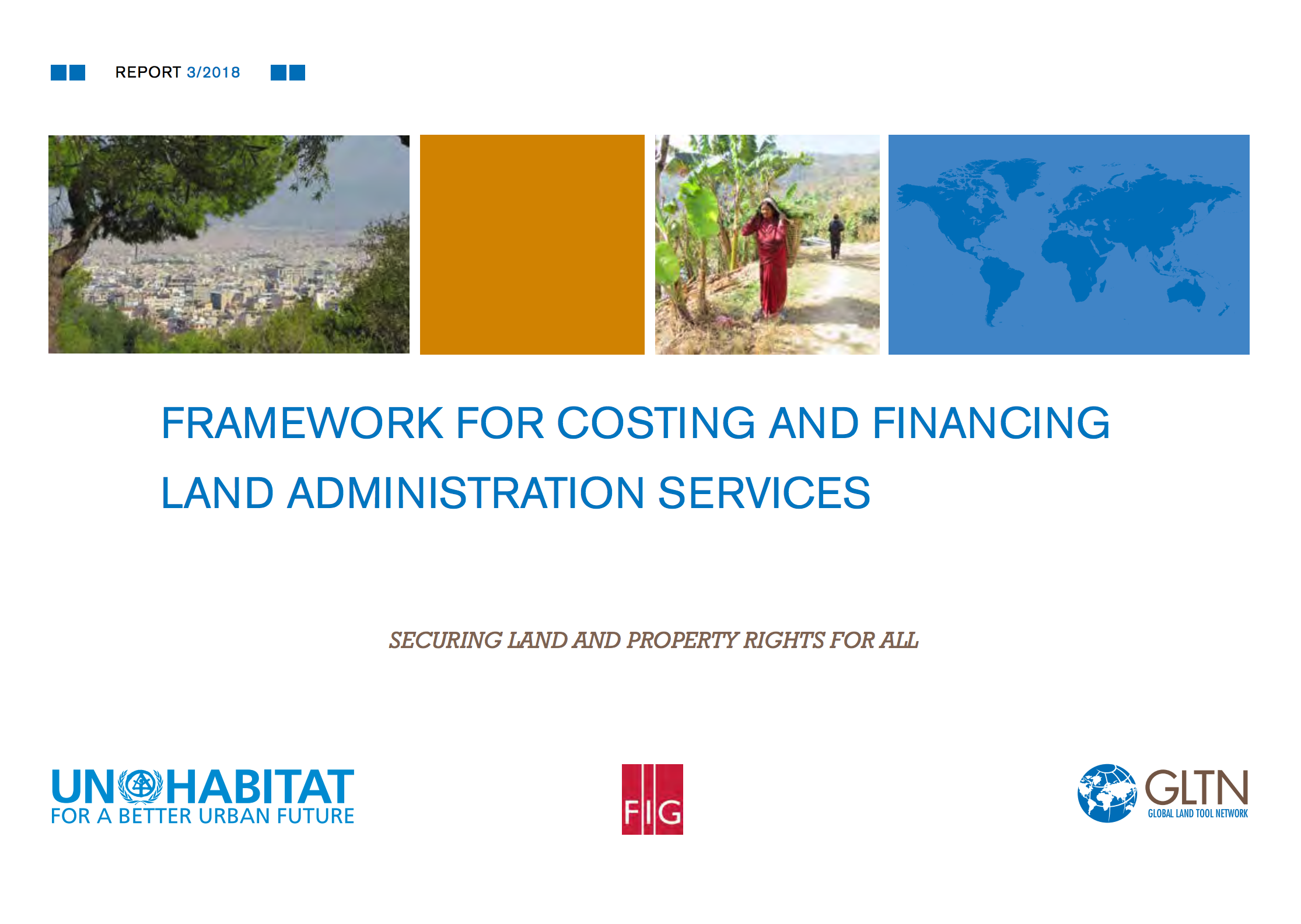Focal point
Location
The Global Land Tool Network (GLTN) is an alliance of global regional and national partners contributing to poverty alleviation through land reform, improved land management and security of tenure particularly through the development and dissemination of pro-poor and gender-sensitive land tools.
Secure land tenure and property rights are fundamental to shelter and livelihoods as well as the realisation of human rights, poverty reduction,economic prosperity and sustainable development.
The Global Land Tool Network (GLTN) main objective therefore is to contribute to poverty alleviation and the Millennium Development Goals through land reform, improved land management and security of tenure.
UN-Habitat through GLTN continues to work towards this with partners who include international civil society organizations, international finance institutions, international research and training institutions, donors and professional bodies.
Most developing countries use conventional land administration systems which cover less than 30 per cent of the country, leaving up to 70 per cent of citizens looking to informal and/ or customary approaches for their tenure security.
While there are many examples of good land policies, there are few policies that have been fully implemented due to lack of pro-poor, gendersensitive and largescale land tools. Further, conventional land titling approaches have largely failed to deliver their expected results since existing technical solutions are too expensive, inappropriate for the range of tenure found in developing countries, unsustainable financially or in terms of available capacity, and instead a range of land tenure options is more appropriate.
Core Values
Consequently, GLTN's core values and principles are founded in the development of land tools that are:
- Pro poor;
- Equitable;
- Sustainable;
- Affordable;
- Systematically large scale /scalable; and,
- Gender-sensitive, while taking into consideration:
- Good governance;
- Subsidiarity; and,
- The Continuum of Land Rights.
GLTN Objectives and Mandate
GLTN has developed a global partnership on land issues pulling together global partners, as well as many individual members. These partners include international networks of civil society, International Finance Institutions, international research and training institutions, donors and professional bodies. It continues to take a more holistic approach to land issues by working towards the following objectives:
- The establishment of a continuum of land rights, rather than just focus on individual land titling
- Improving and developing pro-poor land management, as well as land tenure tools
- Unblocking existing initiatives Assisting in strengthening existing land networks
- Supporting in the development of gendered land tools which are affordable and useful to grassroots
- Improving the general dissemination of knowledge about how to improve security of tenure
- Improving the general knowledge dissemination on the improvement of security of tenure
Resources
Displaying 31 - 35 of 288Cadastral Data Model for an Informal Settlement: Case Study of Huruma, Nairobi – Kenya
The complexity of tenure claims in the informal settlements has been difficult to incorporate into the formal systems owing to their dynamic and continuously changing nature. Innovative tools are therefore required to capture these claims. This requires the development of a cadastral data model specifically for informal settlements that would document such claims to make it easier to manage the current situation as well as prepare for future formalization processes such as regularization or relocation.
Guidelines for Impact Evaluation of Land Tenure and Governance Interventions
The overall objective of the Guidelines for Impact Evaluation of Land Tenure and Governance Interventions is to inform and strengthen the design and implementation of future land tenure and governance interventions to best support lasting tenure security and achieve related impacts on poverty, food security, gender equality, environmental sustainability and security.
Land and Conflict in Jubaland : Root Cause Analysis and Recommendations
The aim of the study is to investigate the land-related causes of conflict in the Jubaland State of Somalia. The study findings are expected to guide the work of the UN in peace building and land conflicts management and to inform land policy processes and other land governance interventions in Jubaland and Somalia as a whole.
The study has three specific objectives:
Framework for Costing and Financing Land Administration Services (CoFLAS)
The tool presented in this guide aims to assist policy-makers and land administrators to adopt appropriate technologies and methodologies for land administration services more efficiently, cost effectively and with options most appropriately tailored to national and sub-national contexts. It was developed after recognizing the need to modernize the budgetary approach to land agencies and to provide effective, cost-efficient, affordable and sustainable services, particularly in developing countries.
Framework for Costing and Financing Land Administration Services (CoFLAS)
The tool presented in this guide aims to assist policy-makers and land administrators to adopt appropriate technologies and methodologies for land administration services more efficiently, cost effectively and with options most appropriately tailored to national and sub-national contexts. It was developed after recognizing the need to modernize the budgetary approach to land agencies and to provide effective, cost-efficient, affordable and sustainable services, particularly in developing countries.








